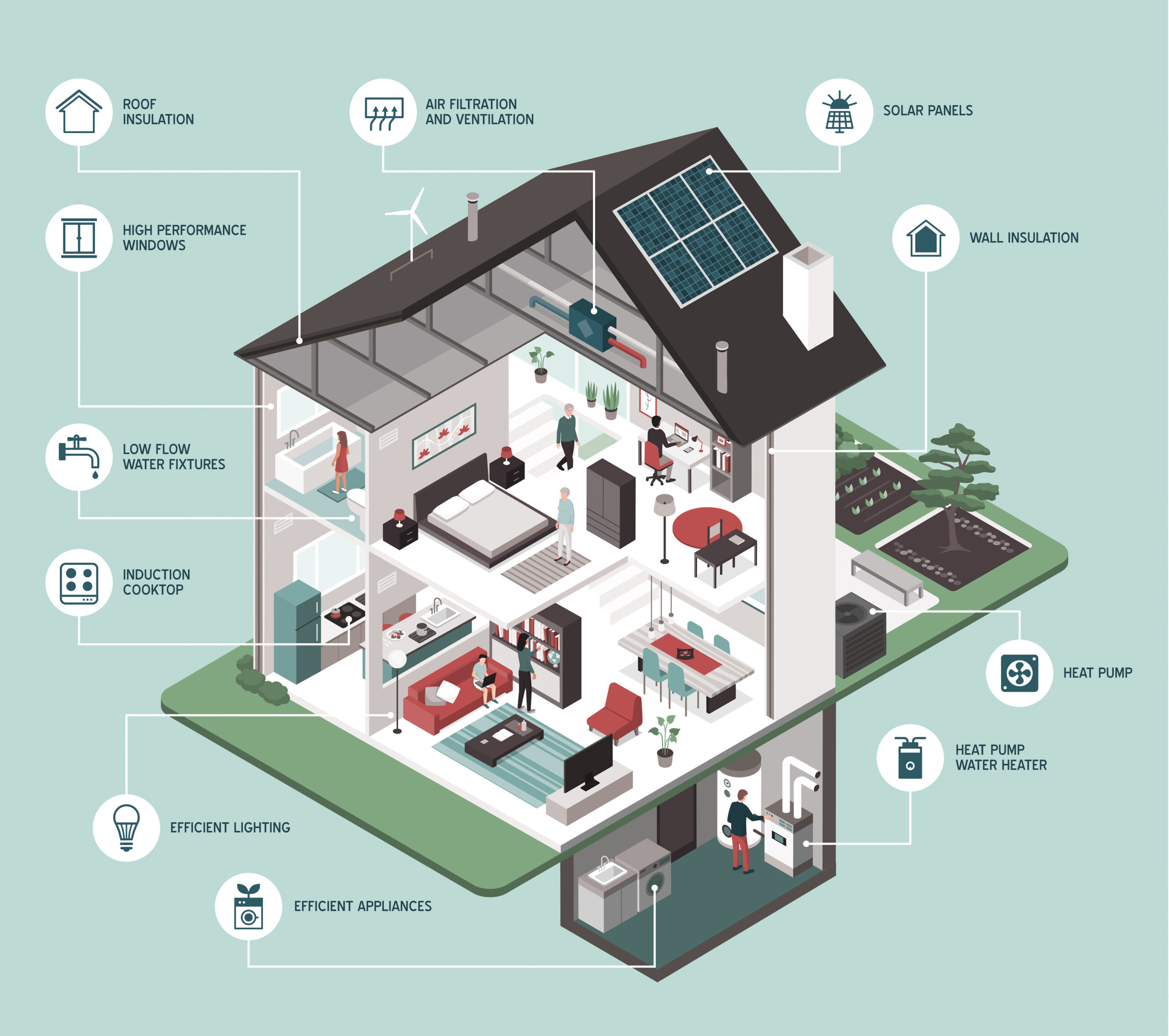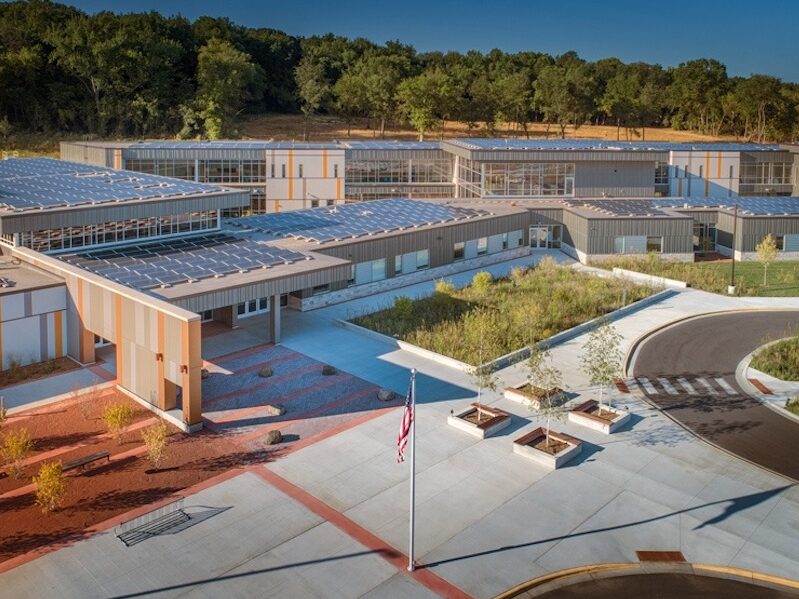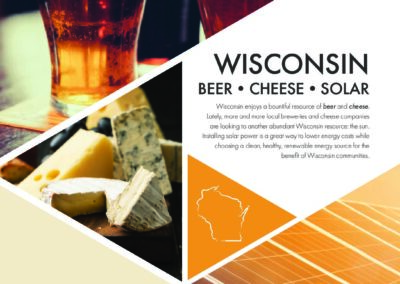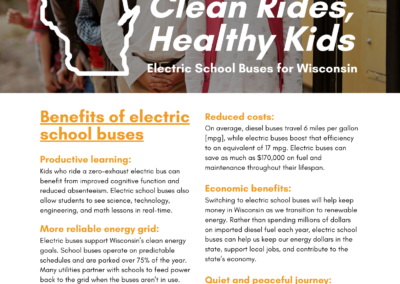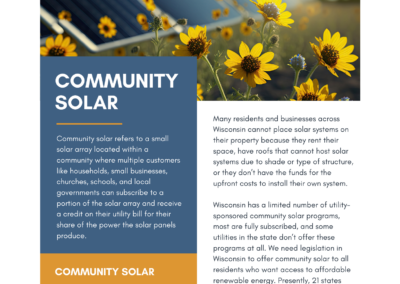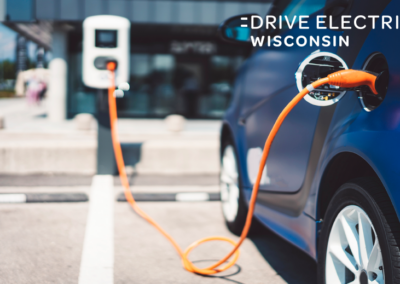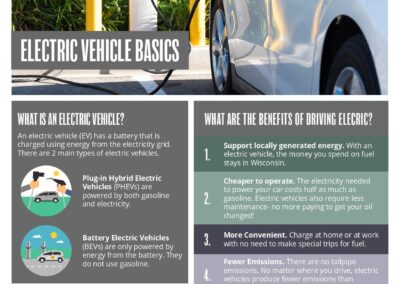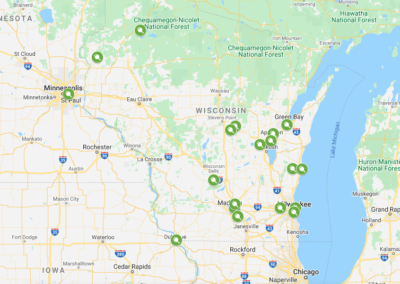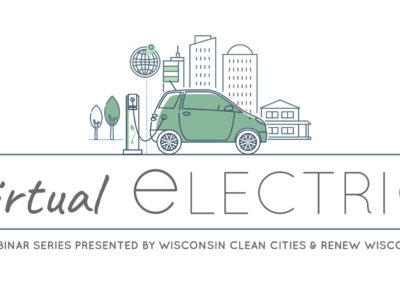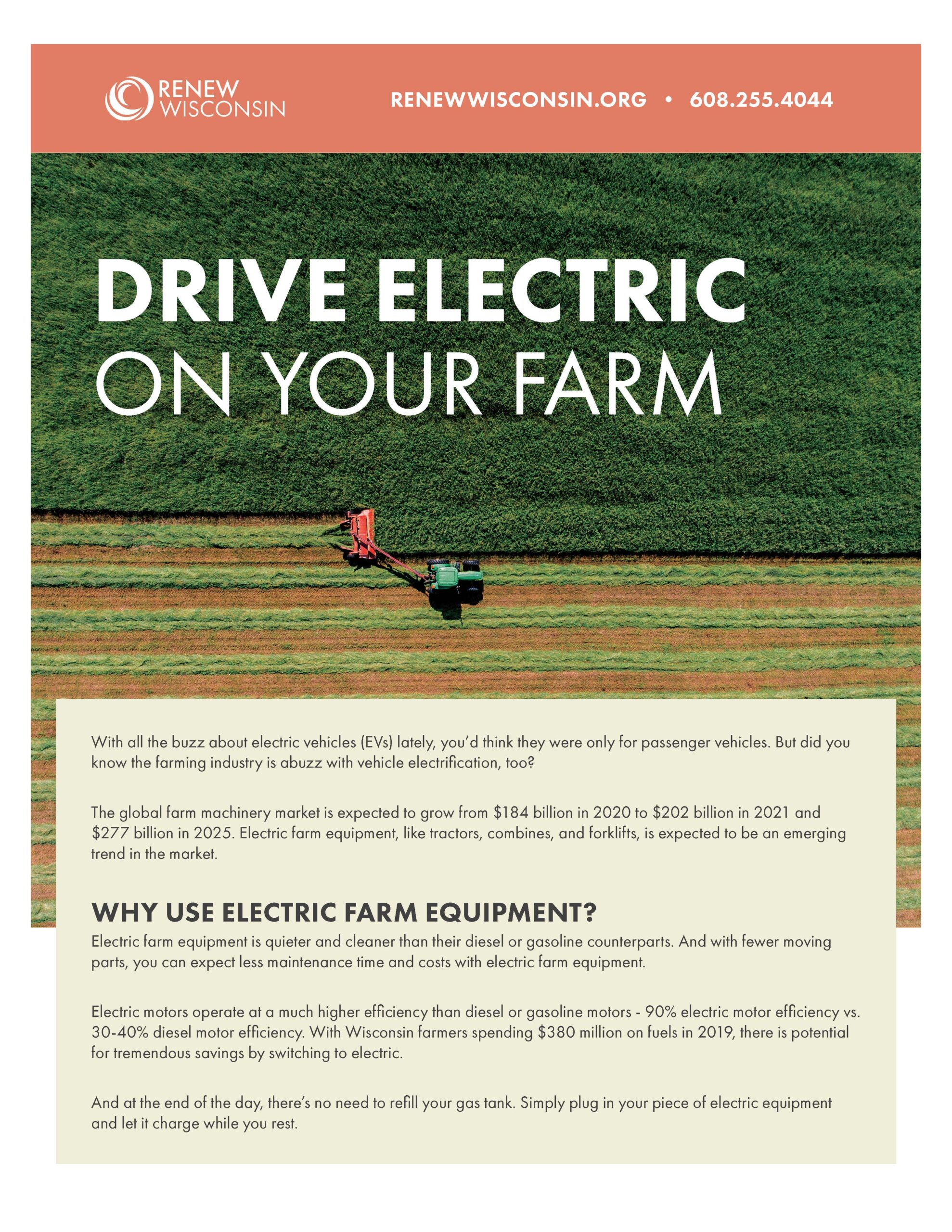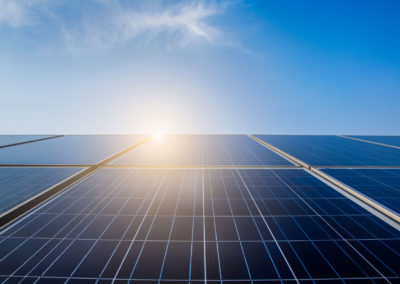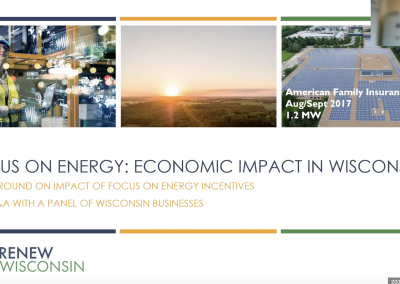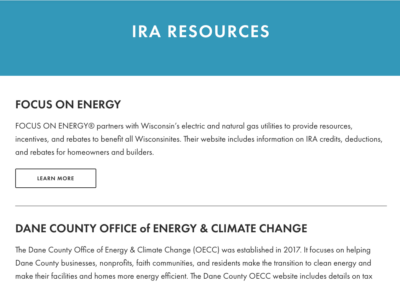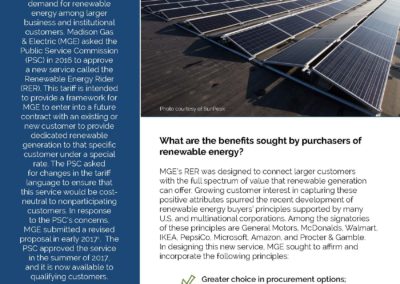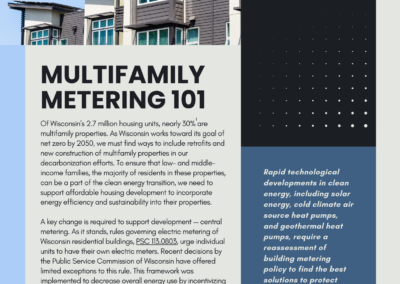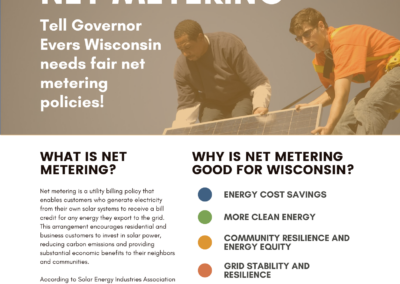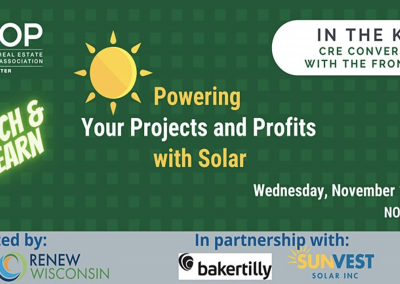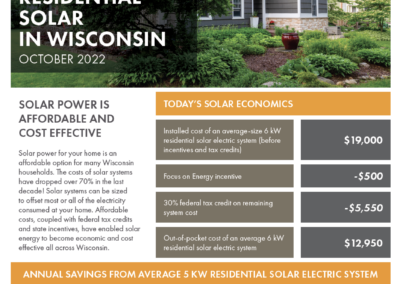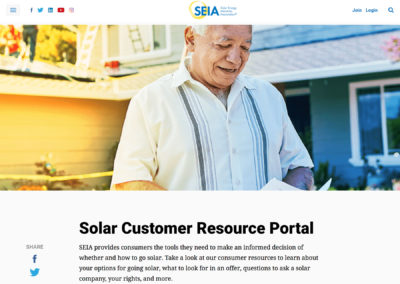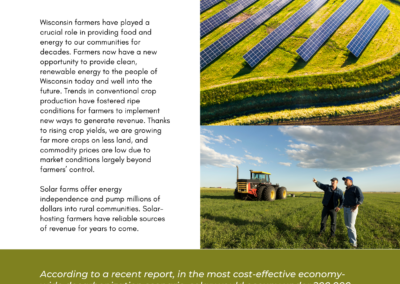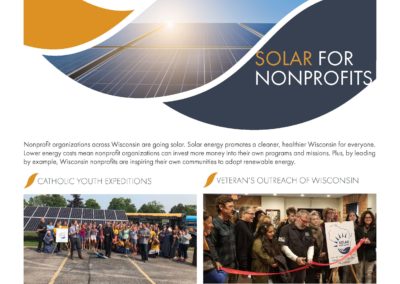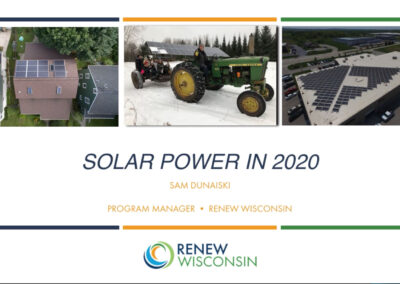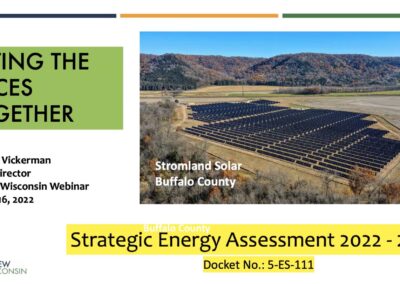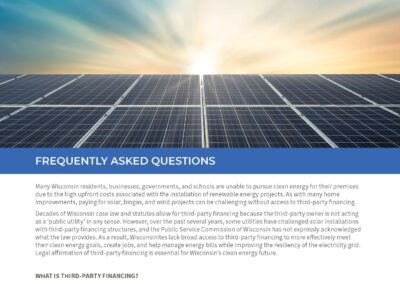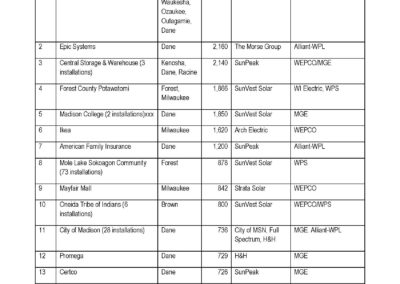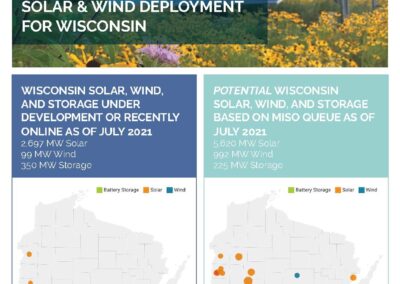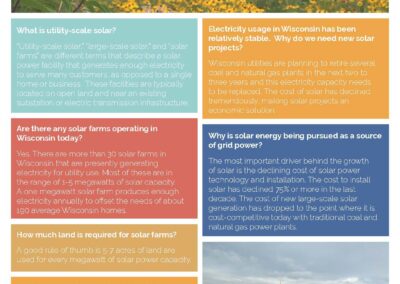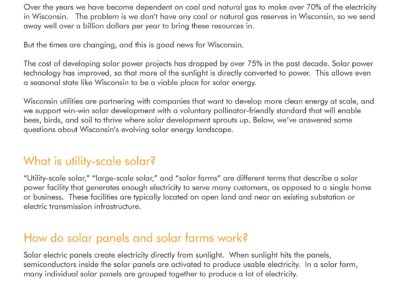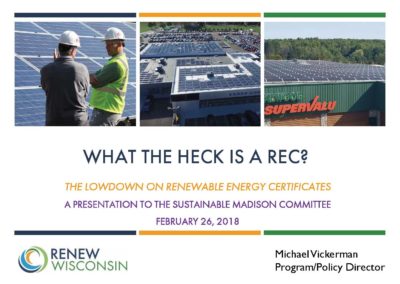Electrifying building technologies allow us to power our homes and businesses with renewable energy. The more we expand local renewable energy generation in Wisconsin, electrifying technologies and home efficiency improvements can result in even greater emission reductions and cost savings. Our energy grid is quickly becoming cleaner, which is consistently increasing the benefit of electrifying your home or business.
From rooftop solar to electric appliances, there are many ways you can electrify your home. Weatherization and efficiency upgrades make these updates even more cost-effective. Learn how the Inflation Reduction Act can make it easier for you to electrify your home.
Solar Panels
Solar is a renewable energy source that can power your electric appliances and make your home net zero. For more information, click here.
Battery Storage
Battery storage allows for better integration of solar power at your home, increases grid reliability, and provides a non-polluting backup power source. Learn more about battery storage.
Heat Pump AC & Heater
Heat pumps provide efficient heating and cooling. For more information on geothermal heat pumps, click here. For more information on air-source heat pumps, click here.
Heat Pump Water Heater
Heat pump water heaters use heat pump technology to efficiently heat water. For more information on heat pump water heaters, click here.
Heat Pump Dryer
Heat pump dryers require less energy to dry clothes and can do so at lower temperatures, reducing wear on clothes. For more information on heat pump dryers, click here.
Induction Stove
Induction stoves use electromagnetism to heat food, providing a high-quality cooking experience. For more information on induction cooking, click here.
There are many options for homeowners to begin the transition to a fully electrified home while also increasing their quality of life. Now more than ever is the time to get started, thanks to funding from the Inflation Reduction Act. Rebates available through this historic legislation help make many of the features listed in the above graphic more accessible.
For new buildings, the electrification process starts before construction beings. By setting energy performance goals during the early stages of design and construction, new buildings can provide significant cost savings in relation to energy usage. The U.S. Department of Energy’s Building Technologies Office (BTO) has developed resources and tools to help design teams construct energy-efficient commercial buildings. Similarly, the Focus on Energy® Program provides design assistance to help owners, project managers, architects, and engineers evaluate cost-effective energy efficiency and renewable energy strategies for new buildings. Both resources can be explored using the buttons below.
Case Study
Residential Electrification
Susan Miller converted her 90-year old single family home to all-electric. Susan covers the full process in her guest blog along with some important context.
Case Study
New Builds: Forest Edge Elementary
In January 2022 Forest Edge Elementary School in Fitchburg, Wisconsin became the largest net-zero verified education project in the United States. The 126,600-sf project features 1,700 solar panels, 90 geothermal wells, and an energy-maximizing design. In addition to being energy-efficient, the school’s design connects students to the natural environment and leverages its unique features as a teaching tool.

